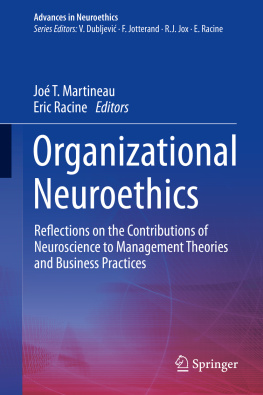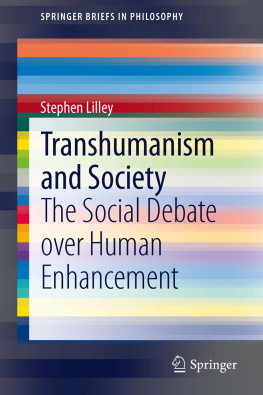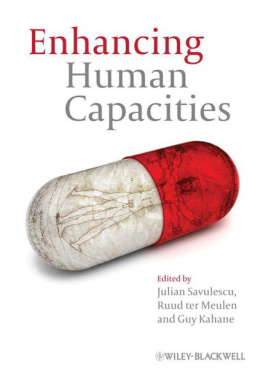Cognitive Enhancement: Ethical and Policy Implications in International Perspectives
Fabrice Jotterand and Veljko Dubljevic
ABSTRACT
There is a growing literature in neuroethics dealing with cognitive neuroenhancement for healthy adults. However, discussions on this topic tend to focus on abstract theoretical positions while concrete policy proposals and detailed models are scarce. Furthermore, discussions appear to rely solely on data from the United States or United Kingdom, and international perspectives are mostly nonexistent. This volume fills this gap and addresses issues on cognitive enhancement comprehensively in three important ways: (1) it examines the conceptual implications stemming from competing points of view about the nature and goals of enhancement; (2) it addresses the ethical, social, and legal implications of neuroenhancement from an international and global perspective including contributions from scholars in Africa, Asia, Australia, Europe, North America, and South America; and (3) it discusses and analyzes concrete legal issues and policy options tailored to specific contexts. Part 1 focuses on conceptual issues arising from the use of cognitive neuroenhancement technologies in the social milieu and clinical context. Part 2 provides analysis from an international perspective. This section addresses normative issues and cultural values, along with an analysis of empirical data on public attitudes on cognitive enhancement and/or prevalence. Part 3 examines the regulatory options available to policy-makers to allow a responsible use of cognitive enhancement and current issues at the intersection between law and cognitive enhancement.
Keywords: cognitive enhancement, neuroethics, stimulant drugs, brain stimulation devices, public policy, international perspectives
BIBLIOGRAPHIC INFORMATION
Print publication date: 2016 Print ISBN-13: 9780199396818
Published to Oxford Scholarship Online: August 2016 DOI:10.1093/acprof:oso/9780199396818.001.0001
Introduction
Fabrice Jotterand
Veljko Dubljevi
DOI:10.1093/acprof:oso/9780199396818.003.0001
This chapter serves as an introduction to the volume, an international collection of essays that fill the gap in the growing literature in neuroethics dealing with cognitive neuroenhancement for healthy adults. It addresses issues of cognitive enhancement comprehensively in three important ways: (1) it examines the conceptual implications stemming from competing points of view about the nature and goals of enhancement; (2) it addresses the ethical, social, and legal implications of neuroenhancement from an international and global perspective including contributions from scholars in Africa, Asia, Australia, Europe, North America, and South America; and (3) it discusses and analyzes concrete legal issues and policy options tailored to specific contexts.
Keywords: cognitive enhancement , neuroenhancement , neuroethics , public policy , international perspectives
Many of the cognitive enhancement drugs serve to increase focus and concentration. But letting your mind wander is very often an important part of the creative process.
Jamais Cascio
The development of novel technologies that could potentially enhance human cognitive capacities (either through psychopharmacological means, neurotechnologies, or a combination of the two modalities) has generated, in the past decade, many heated debates concerning a set of issues mostly focusing on conceptual, philosophical, and ethical matters. However, as these technologies are reaching the marketplace, few proposals have been put forward to regulate their nonclinical use. Although there is a growing body of work in neuroethics addressing issues associated with cognitive neuroenhancement for healthy adults, discussions on concrete policy proposals and detailed analyses of regulatory frameworks for cognitive enhancement technologies are scarce. Furthermore, debates tend to rely solely on data from the United States or English-speaking countries, whereas international perspectives are mostly neglected. Recognizing the necessity to address these gaps in the literature and to provide the most up to date analysis, we invited scholars from various disciplines, with different expertise and national identities, to reflect on issues pertaining to cognitive enhancement around the following three questions: (1) What are the conceptual implications stemming from different points of view about the nature and goals of cognitive enhancement? (2) How different are the ethical, social, and legal perspectives in various countries from Africa, Asia, Australia, Europe, North America, and South America? And (3) what are the legal and regulatory frameworks, if any, set by these countries that reflect their sociopolitical and ethical values?
This volume is built around these three framing questions and offers a unique collection of essays from a multidisciplinary and international perspective. Unlike other volumes on enhancement that focus almost exclusively on (p.2) discussions concerning abstract conceptual positions, this volume emphasizes a pragmatic approach for examining and potentially solving social problems. Specifically, we structured the volume into three main sections that include conceptual implications, contextual analysis, and legal and regulatory options. The first part, entitled Conceptual Implications, gathers essays that address important questions related to the nature of the philosophical claims used in the enhancement debate, issues pertaining to the meaning of moral agency, particular assumptions about human abilities and social expectations, and the need for a better consideration of the specific contexts in which the enhancement debate takes place. The second part, International Perspectives, examines the role of cultural values and national political systems in shaping public attitudes and the justification of national policies. Essays include analyses from the various national contexts of South Africa, Taiwan, Israel, Australia, Germany, the Netherlands, Canada, and Chile. The third and final part of the volume, Law and Policy Options, builds on the examinations of the national contexts provided in Part 2 but addresses questions pertaining to the regulation of cognitive enhancement technologies. Contributors investigate a broad set of issues that comprise the regulatory framework for the use of enhancement drugs (e.g., Modafinil), market considerations, constitutional and legal concerns about the freedom to use enhancement in the United States, and the use of cognitive enhancers in the judicial system to improve the cognition of judges.
Conceptual Implications
The implementation of cognitive enhancement technologies in the social context is not without its set of conceptual problems. These neurotechnologies not only raise issues about their appropriate application, but also call into question formerly accepted conceptualizations of human agency and social expectations. The chapters in Part 1 provide a rich analysis that aims at describing key elements of this questioning intended to further foster a robust debate over cognitive enhancement within academic circles but also in the public sphere. In the first chapter of Part 1 (Toward a More Banal Neuroethics), Neil Levy examines the notion of ambivalence developed in the critical work of Erik Parens with regard to attitudes toward the enhancement project. Levy contends that some clarification is needed concerning pessimist and optimist attitudes over the possibility of enhancement. Contra Parens, who argues that ambivalence is the right response in reflections regarding enhancement, Levy considers ambivalence as a deterrent for well-reasoned deliberations in neuroethics. His analysis is based on the most recent experimental work on cognitive dissonance regarding the susceptibility of people to confabulation (p.3) in moral reasoning. In Levys words, given the extensive evidence, from a very large number and variety of experiments, for confabulation of reasons, it is extremely likely that people sometimes confabulate moral reasons (Levy, p. 4). In the light of these considerations, he suggests removing those elements (excitement, emotional responses, etc.) in neuroethics debates that could trigger ambivalence and, subsequently, confabulations. So doing, he argues, opens more ample space in which well-grounded arguments for and against enhancement can be advanced.
Next page









